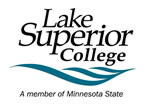Part 1: Purpose
This procedure provides requirements and guidelines for the consistent administration of admissions policies at Lake Superior College
Part 2: Definitions
Academic Program
A cohesive arrangement of college-level credit courses and experiences designed to accomplish predetermined objectives that leads to a degree, diploma or certificate.
Ability to Benefit
The Consolidated and Further Continuing Appropriations Act of 2015 amended the Higher Education Act of 1965 to partially restore what is known as the “ability to benefit (ATB) alternatives.” The law went into effect December 16, 2014, and allows for a student who did not receive a high school diploma or its equivalent, or who did not complete a secondary school education in a homeschool setting, to be eligible for Title IV financial aid meeting a combination of ATB alternatives and enrollment in an eligible career pathways program.
Eligible career pathways program
Any Title IV Higher Education Act eligible program offered at a postsecondary institution in which a student is enrolled in the postsecondary program to earn at least one recognized postsecondary credential and participates in an adult education component that enables the student to attain a high school diploma or its recognized equivalent. The career pathways program must include accelerated programming that is aligned to a specific occupation or occupation clusters; a counseling and supportive service component; alignment with the education and skill needs of the state or regional economy; and the ability to prepare students to be successful in any of a full range of secondary or postsecondary education options, including registered apprenticeships.
International student
A student who is required to be registered under the federal Student and Exchange Visitor Information System (SEVIS).
Part 3: Items needed for Admission
Subpart A: Items needed for Admission
All applicants must submit:
Lake Superior College (LSC) or Minnesota State Colleges and Universities application form.
High school transcript from a high school recognized by a regionally accredited body (only required if obtained less than five years ago) or GED test scores (only required if obtained less than five years ago).
- Note: A person who does not have a high school diploma or its equivalent and intends to enroll in an eligible-career pathways program may be admitted if that person demonstrates passing scores on the approved Ability to Benefit (ATB) test or other U.S. Department of Education approved admissions process.
Official transcripts from each higher educational institution attended. Transcripts from all previous colleges are required for credit, selective programs, and/or for financial aid recipients. Official transcripts from Minnesota State institutions are received electronically and do not need to be sent in paper form if taken after 1998.
- NOTE: Transcripts may not be faxed. Transcripts must arrive at LSC in a sealed envelope directly from the institution or via secure electronic transmission from the institution attended.
High school students seeking admission under the Post-Secondary Enrollment Options (PSEO) program must satisfy additional requirements for admission. Contact the Student Services Center for specific requirements and/or see policy 3.5 on Post-Secondary Enrollment Options.
Part 4: International Students
Subpart A: Academic Preparation, English Proficiency, and Additional Requirements
International students shall be eligible for admission if their academic preparation is judged to be equivalent to the admission requirements of LSC.
International students must provide documents that prove high school graduation and may be required to submit those documents to an external evaluation service designated by LSC. If documents provided are not submitted in English, students must also submit English translations from a certified translator. The cost of the credential evaluation and/or certified translation shall be the responsibility of the student.
International students who have not had at least three consecutive years of study with English as the language of instruction shall be required to demonstrate proficiency in English. An international student may be admitted to attend an intensive English as a second language program if the student attains a score of 400 on the Test of English as a Foreign Language (TOEFL) or its equivalent. An international student may be admitted as a regular student if the student attains a score of 500 on the TOEFL or its equivalent.
International students must show proof of a valid M-1/F-1 visa issued by the U.S. Department of State.
International students must maintain at least a 12-credit load each semester.
Subpart B: Economic Self-Sufficiency
Prior to being admitted to LSC, an international student must demonstrate economic self-sufficiency to be able to afford the costs of tuition and fees, books and supplies, room and board, transportation, and any other costs necessary for the completion of the academic year.
International students must purchase the system-approved student health insurance, except those students whose sponsoring agency or government certifies that the student is covered under a plan provided by the sponsoring agency or government. Health insurance must be maintained while attending LSC.
Part 5: Documentation of Admission Eligibility
Subpart A: Individual Evaluation
Applicants may be required to document admission eligibility. Those who are unable to present transcripts or other traditional documentation of educational preparation shall be individually evaluated on the basis of guidelines consistent with LSC’s identity and mission.
Subpart B: High School Students
LSC will admit current high school students on schedule to graduate. High school students admitted to a college or university to participate in the post-secondary enrollment options (PSEO) program and/or PSEO concurrent enrollment shall adhere to the admissions and documentation requirements in Board Policy 3.5 and System Procedure 3.5.1.
Subpart C: Non-degree Seeking Status
LSC allows students to enroll for courses in a non-degree-seeking status. These students are not candidates for diplomas, certificates or degrees at LSC.
Subpart D. Approved Ability to Benefit test
The ACCUPLACER is the approved Ability to Benefit (ATB) test referred to in Part 3, Subpart A. The approved passing scores on this test are as follows: Reading Comprehension (233), Writing (235), and Arithmetic (230). A student must attain passing scores on all three tests in order to be admitted under the provision in Part 3, Subpart A. At the time of admission into a college and into an eligible career pathways program, students admitted under this provision must be informed in writing that they may apply and possibly qualify for federal financial aid.
Part 6: Admission to an Academic or Career Program
Admission to LSC does not automatically qualify a student for all courses and curricula of the College; some programs and/or course offerings have special prerequisites. Academic, fiscal, and facilities considerations may also limit admission to particular programs.
Qualified applicants should be aware that some program class sizes are limited, which may delay acceptance into programs after the prerequisites are completed. Some programs utilize a waiting list process and/or competitive application process. In programs with non-competitive application processes, program applicants are grouped by the term in which their prerequisites are completed and then ranked by their file completion/program change date. Students who have the prerequisites completed first with the earliest file completion/program change date will have the highest priority on the list. Pre-requisites and other program entrance requirements include but are not limited to GPA, specific coursework, background checks, and/or drug/alcohol testing. Check with individual programs for specific policies.
Part 7: Students Suspended from LSC or Other Institutions
Subpart A: Students Suspended for Academic Reasons
Students on academic suspension from LSC or another college or university and/or whose grades from previously attended colleges fail to meet LSC satisfactory academic progress standards shall not be admitted/re-admitted to LSC during the term of that suspension unless they demonstrate potential for being successful in the particular program to which they apply.
Subpart B: Students Suspended for Disciplinary Reasons
Students who have been suspended or expelled for disciplinary reasons from any postsecondary institution may be denied admission to Lake Superior College.
Part 8: Appeals
Students who are denied admission may submit a Suspension Appeal to be considered for admission. Deadlines apply. Please see Procedure 2.9.1 Academic Standing and Financial Aid Satisfactory Academic Progress.
Part 9: Re-Admission
Students who have previously attended LSC but have not been enrolled at LSC within the previous 2 years must re-apply. See Part 3, Subpart A for items needed for admission.
Part 10: Financial holds
LSC may admit a student who has a financial hold at another college or university of Minnesota State, but shall not allow the student to enroll in courses until the financial hold has been lifted. Exceptions will be made for students:
- enrolling in non-credit and closed-credit courses offered through Continuing Education and Customized Training (CECT),
- currently incarcerated and enrolling in a college or university prison partnership program, or
- enrolling in federal, state, county, or other public or non-profit sponsored academic programs.
History
Date Implemented: May 2009
Date Reviewed/Updated: May 23, 2016; March 29, 2023
President’s Signature Date: March 29, 2023



